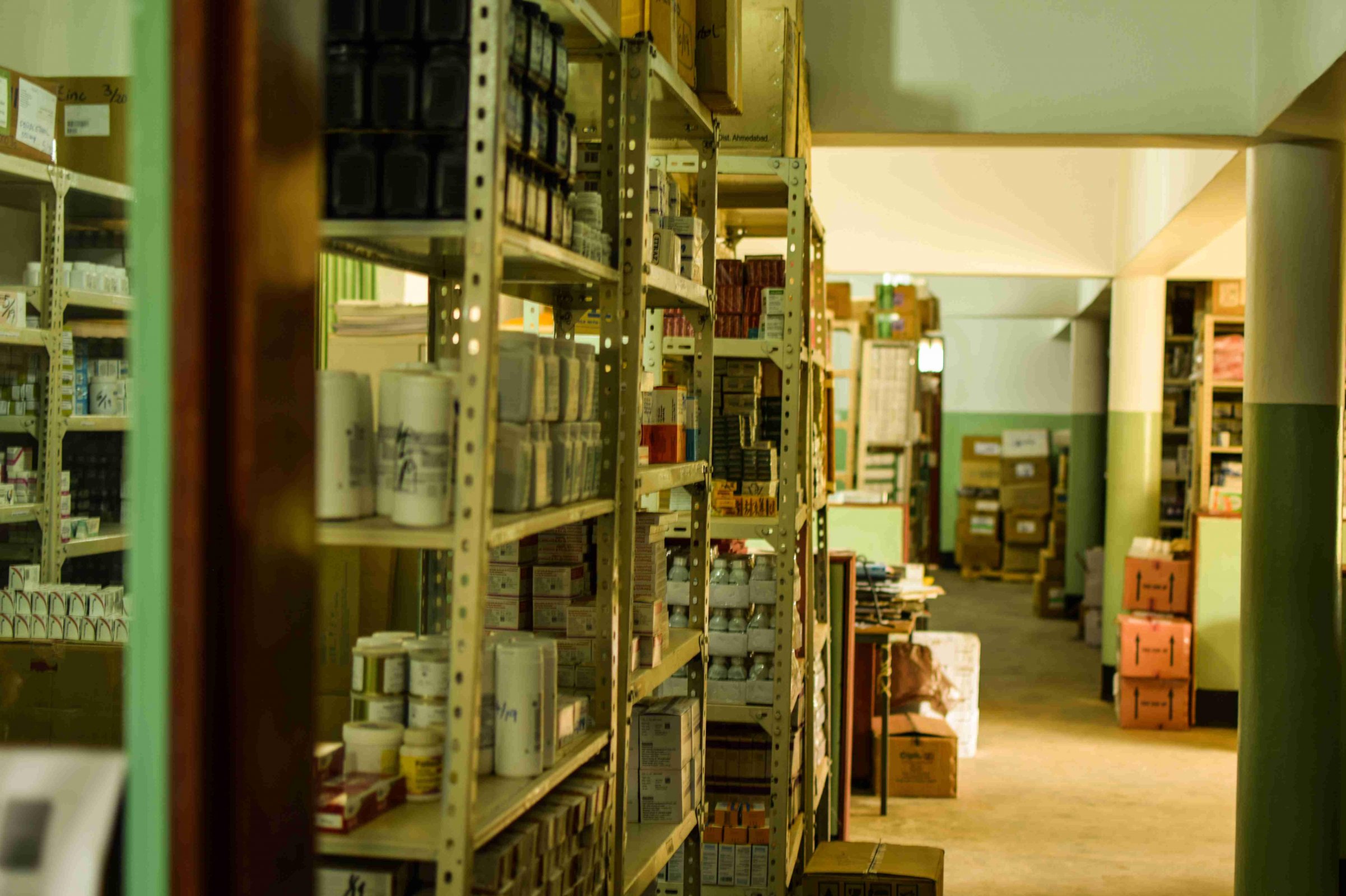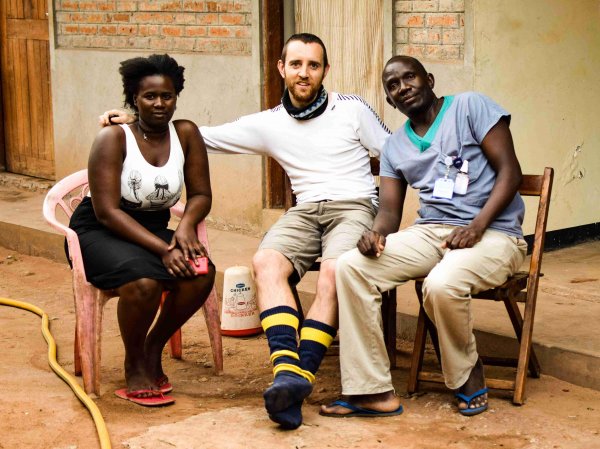On the frontline of antibiotic resistance in South Sudan
18 Apr 2018
Written by Matthew Jones
It’s easy to make assumptions and judgements about developing world medicine. We would all start by assuming that antibiotics and drugs are in short supply here.
But that’s not the case, at least not in South Sudan. We’ve got enough common and frontline antibiotics, the sort you find in any Western hospital, to get us through the rest of the year, even without extra supplies arriving. For Western donors, governments, NGOs and private companies, the provision of antibiotics is a relatively easy victory. But simply packaging and sending out antibiotics is the easy part.
It’s how antibiotics are used here that is the challenge. It’s how and when they’re prescribed, and how and when they’re administered.
In St Theresa Hospital, Nzara, a hospital set up and still run by the Comboni sisters, an Italian order of nuns who operate in over 30 countries worldwide, we have no investigations or simple guidelines that direct our use of antibiotics. We rely solely on clinical judgement to determine if a child with malaria also has a bacterial infection, whether it might be in the lungs or intestinal tract.
When the antibiotics are so readily available, and when the wards are so full, the simplest, quickest and safest answer can seem to be “prescribe”. What harm can it do to prescribe antibiotics when a child is dying before your eyes?
And when you’re admitting yet another sick child, often malnourished and weak, how much loyalty can we expect from a clinician in the fight against global antibiotic resistance?
The average in-patient stay in days of a child on the paediatric ward at St Theresa Hospital, Nzara, South Sudan: 2.9
The average number of antibiotics prescribed during a child’s in-patient stay: 2.7
Does it constitutes a victory when we are not quite prescribing an antibiotic for every day a child patient is on our ward?
In a country like South Sudan, where inequality abounds, where children still die of malnutrition, antibiotics are progress. In a country that feels almost forgotten by the West, antibiotics represent inclusion in modernity. They are one of the few Western inventions that has been handed down to the developing world fairly freely. And they save lives. In places like the hospital where I work, can we really start lecturing now about using antibiotics cautiously?
Day to day
I’m on a ward round and I’ve already changed IV antibiotics prescriptions for five children for a possible respiratory tract infection. All it takes here is for a clinician to think they might have heard an additional noise in the lungs of a child, and suddenly the child is being injected by two different powerful antibiotics, antibiotics that in a UK hospital you might need approval from an infectious diseases consultant or microbiologist. If a clinician did this in the West, they would be questioned by colleagues, but here this is standard practice. At the same time, when you see how quickly children can die here from infections, malaria and diarrhoea, you tread carefully and start to alter the calculation. How many antibiotics withheld justifies the loss of a life to sepsis?
Everywhere I look on the ward, I see diagnostic uncertainty met by an antibiotic assault.
Interestingly, I’ve started to spot a trend in our practices in the hospital; children who are started on IV antibiotics for a lung infection, start to get better except for diarrhoeal illness. I often wonder, was this caused by the original infection, or rather a side effect of the antibiotics? Or perhaps is it because the wards are overcrowded with patients and their relatives, young and old. Regardless, do we now prescribe a new antibiotic for a problem that may have been caused by the previous antibiotic?
Everywhere I look on the ward, I see diagnostic uncertainty met by an antibiotic assault. A water infection might look like a sexually transmitted one; so we start treatments for both. Some patients are on four antibiotics at a time! I’d laugh if it weren’t so troubling.
And like drugs anywhere in the world, antibiotics are sometimes prescribed without reason, without documentation, sometimes given without being signed for; they might be prolonged by carelessness; they are cheap, available and expected by patients now. Even patients will limited medical knowledge now believe they are necessary in every case.
How does one begin to fight this?
I have started an audit on antibiotic use in our hospital. I have found examples of antibiotics being used almost at random; occasionally a new one appears for a few days, a flash fashion for Septrin or erythromycin, and then disappears. They have a life of their own it seems.
But is there the will in the hospital to tackle this problem? New antibiotic deliveries arrive all the time. Clinicians are doing what is expected of them… copying, setting precedents. And the idea of global resistance seems a long way away.
If you ask me, how big a priority is this issue, I’ll give you a different answer every hour.
The hospital runs out of fresh water; the mobile phone network is disconnected; the wards are overflowing. Doctors are overrun and we survive day to day, like many of our patients. Hope and despair mingled together every day.
If you ask me, how big a priority is this issue, I’ll give you a different answer every hour. When I’m seeing my 50th patient on the ward round, flagging, tired, I’ll roll my eyes. I just want to escape the cloying midday heat and cacophony of crying children. Later that day, as I compile the evidence, I feel energised and invigorated, ready for the challenge.
I would love to give a guided tour of life here to anyone in the West worrying about antibiotic resistance. This is the frontline. This is where the battle is being lost.
Come out here and see for yourselves. And then give me some solutions, please.
Matthew Jones is a UK-trained doctor and once qualified solicitor. He is serving at St. Theresa Hospital in Nzara, South Sudan for nine months. You can follow his podcast, videos and stories at here and here.


